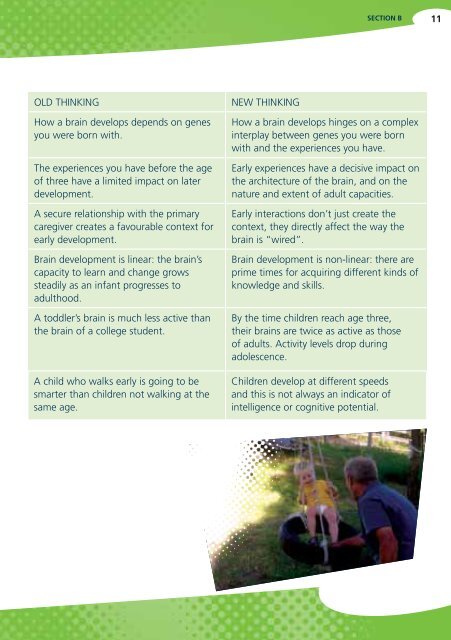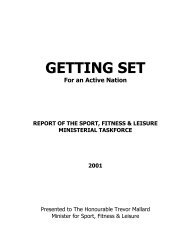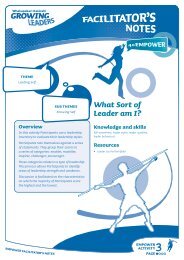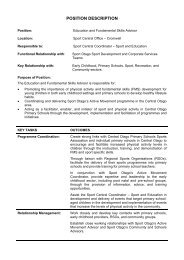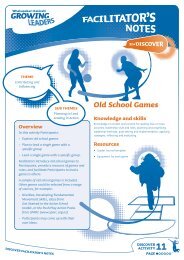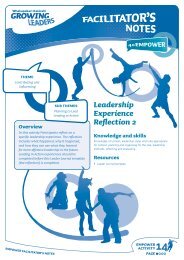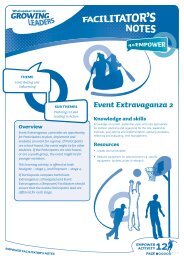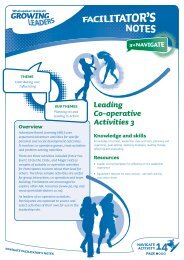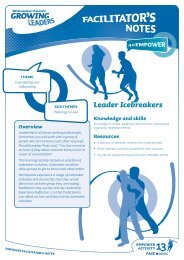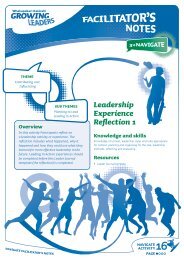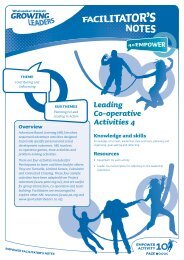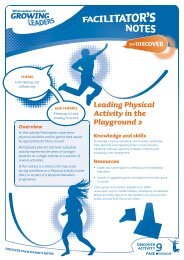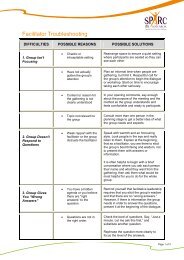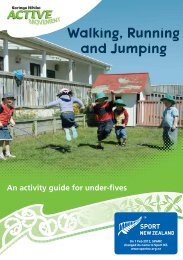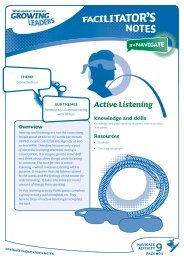An Introduction to Active Movement Koringa Hihiko - Sport New ...
An Introduction to Active Movement Koringa Hihiko - Sport New ...
An Introduction to Active Movement Koringa Hihiko - Sport New ...
Create successful ePaper yourself
Turn your PDF publications into a flip-book with our unique Google optimized e-Paper software.
SECTION B<br />
11<br />
OLD THINKING<br />
How a brain develops depends on genes<br />
you were born with.<br />
The experiences you have before the age<br />
of three have a limited impact on later<br />
development.<br />
A secure relationship with the primary<br />
caregiver creates a favourable context for<br />
early development.<br />
Brain development is linear: the brain’s<br />
capacity <strong>to</strong> learn and change grows<br />
steadily as an infant progresses <strong>to</strong><br />
adulthood.<br />
A <strong>to</strong>ddler’s brain is much less active than<br />
the brain of a college student.<br />
A child who walks early is going <strong>to</strong> be<br />
smarter than children not walking at the<br />
same age.<br />
NEW THINKING<br />
How a brain develops hinges on a complex<br />
interplay between genes you were born<br />
with and the experiences you have.<br />
Early experiences have a decisive impact on<br />
the architecture of the brain, and on the<br />
nature and extent of adult capacities.<br />
Early interactions don’t just create the<br />
context, they directly affect the way the<br />
brain is “wired”.<br />
Brain development is non-linear: there are<br />
prime times for acquiring different kinds of<br />
knowledge and skills.<br />
By the time children reach age three,<br />
their brains are twice as active as those<br />
of adults. Activity levels drop during<br />
adolescence.<br />
Children develop at different speeds<br />
and this is not always an indica<strong>to</strong>r of<br />
intelligence or cognitive potential.


